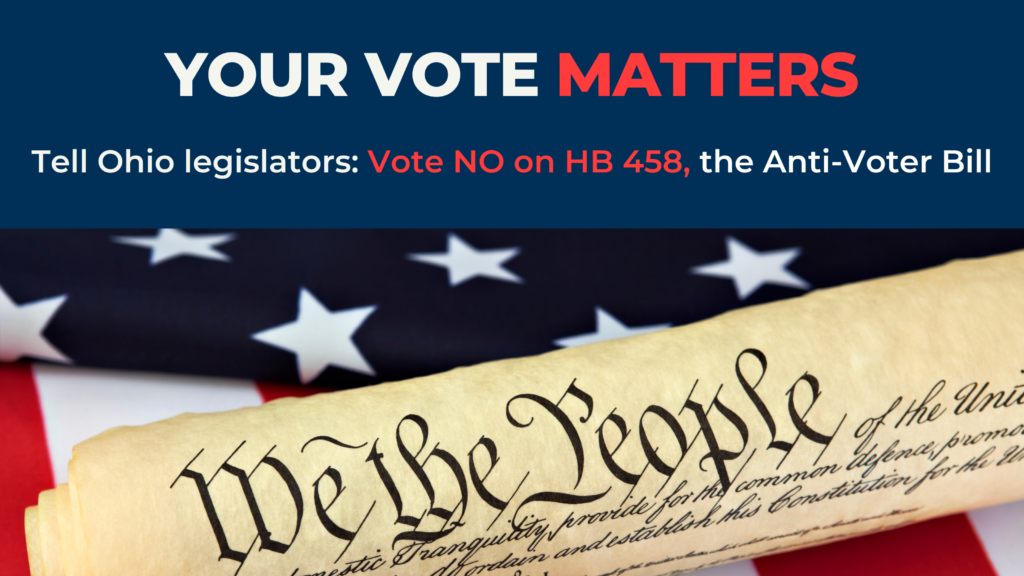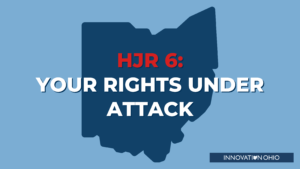The revelation hit us like a thunderbolt: gerrymandering in Ohio wasn’t just bad – it was downright egregious. The recent findings from the Brennan Center for Justice painted a stark picture: a staggering 8 in 10 Ohioans reside in uncompetitive districts, effectively handing over power to politicians on a silver platter while dealing a crushing blow to the very essence of democracy.

Consider this: over 2 million eligible to vote Ohioans remain unregistered. It’s a stark reminder that our government is failing to reflect the diverse voices and perspectives of Ohioans. And to add insult to injury, partisan gerrymandering only exacerbates the problem, further entrenching the status quo.
Politicians drawing themselves favorable gerrymandered districts has been a consistent detriment to our democratic process. As a result, the Ohio Statehouse has become stained by corruption and extremism, making it impossible to know what power-grab or overreach they’ll attempt next.
This year, Ohioans will have the chance to remove politicians from the redistricting process by putting citizens back in the driver’s seat and level the playing field. This ballot measure creates an independent process, led by retired judges, to put citizens, not politicians, in charge of how voting districts are drawn. Any eligible Ohio citizen can apply to be on the commission, but politicians and lobbyists are banned. An open and transparent process to create voting districts that are fair and impartial is just common sense.
This proposal would end gerrymandering by empowering citizens, not politicians, to draw fair districts using an open and transparent process. That is why we are supporting the Citizens Not Politicians constitutional amendment this November and hope you will join us!
Nick Tuell
Senior Communications Director






